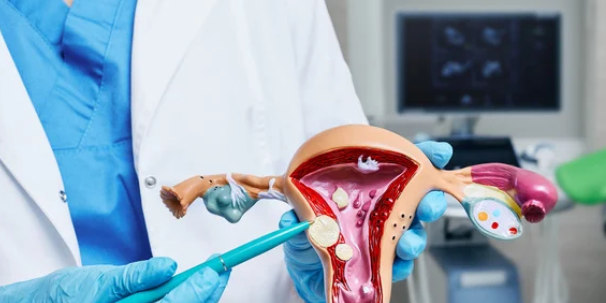Introduction
Uterine fibroids are one of the most common gynecological conditions affecting women of reproductive age. At Ivana MD, a leading Concierge Gynecology and Sexual Health practice in Houston, Dr. Ivana offers compassionate, evidence-based care to help patients understand their diagnosis and choose the most effective treatment.
If you suspect you have fibroids—or have been told you do—this detailed guide explains what they are, why they develop, and the various treatment options available. For personalized care, call 346-585-4077 to schedule an appointment with Dr. Ivana.
What Are Uterine Fibroids?
Uterine fibroids, also known as leiomyomas or myomas, are benign (noncancerous) tumors that grow in or on the uterus. They are composed of muscle and fibrous tissue and can vary in size from tiny seedlings to large masses that distort the uterus. Fibroids are extremely common—studies estimate that up to 70% of women will develop them by age 50.
Types of Fibroids
- Intramural Fibroids – Grow within the muscular wall of the uterus.
- Subserosal Fibroids – Extend outward from the uterine wall into the pelvic cavity.
- Submucosal Fibroids – Develop beneath the uterine lining and may protrude into the uterine cavity.
- Pedunculated Fibroids – Attached to the uterus by a thin stalk.
Symptoms of Uterine Fibroids
Many women with fibroids experience no symptoms. When symptoms do occur, they may include:
- Heavy or prolonged menstrual bleeding
- Pelvic pain or pressure
- Frequent urination
- Difficulty emptying the bladder
- Constipation
- Lower back pain
- Pain during intercourse
- Fertility issues or recurrent pregnancy loss
If you have any of these symptoms, a comprehensive evaluation at Ivana MD can help determine if fibroids are the cause.
Causes and Risk Factors
The exact cause of fibroids remains unknown, but research highlights several contributing factors:
- Hormones: Estrogen and progesterone promote fibroid growth.
- Genetics: A family history increases risk.
- Age and Race: Fibroids are more common and severe among women in their 30s and 40s and are particularly prevalent among Black women.
- Lifestyle Factors: Diet high in red meat, low in fruits/vegetables, and obesity may increase risk.
Diagnosis at Ivana MD
Dr. Ivana uses advanced diagnostic tools to identify and evaluate fibroids, including:
- Pelvic examination
- Ultrasound imaging
- MRI for complex cases
- Hysterosonography or hysteroscopy when needed
Concierge care means appointments are private, on time, and tailored to your schedule.
Treatment Options for Uterine Fibroids
Treatment depends on the size, location, and severity of symptoms—as well as your fertility goals. At Ivana MD, Dr. Ivana creates an individualized plan, which may include:
1. Watchful Waiting
If fibroids are small and not causing symptoms, careful monitoring with periodic imaging is often sufficient.
2. Medication
- Hormonal Birth Control: Reduces heavy bleeding.
- Gonadotropin-Releasing Hormone (GnRH) Agonists: Shrink fibroids temporarily.
- Tranexamic Acid: Manages heavy periods.
3. Minimally Invasive Procedures
- Uterine Fibroid Embolization (UFE): Blocks blood supply to fibroids, causing them to shrink.
- MRI-Guided Focused Ultrasound Surgery (FUS): Uses sound waves to destroy fibroid tissue.
4. Surgical Options
- Myomectomy: Removes fibroids while preserving the uterus—ideal for women wishing to conceive.
- Hysterectomy: Complete removal of the uterus for severe cases where fertility is no longer a concern.
Lifestyle and Preventive Tips
While fibroids cannot always be prevented, healthy habits can reduce risk and symptoms:
- Maintain a healthy weight.
- Eat a balanced diet rich in fruits, vegetables, and whole grains.
- Manage stress through exercise and mindfulness.
- Schedule regular gynecological exams at Ivana MD.
Living with Uterine Fibroids
Fibroids can affect quality of life, intimacy, and fertility. Concierge gynecology at Ivana MD ensures you receive compassionate care with direct access to your physician. Whether you are considering pregnancy, struggling with heavy periods, or exploring minimally invasive procedures, Dr. Ivana provides personalized guidance every step of the way.
Related Resources
- Overcoming Sexual Dysfunction
- Infertility and Stress: What You Should Know
- Does Your Marriage Need an Intimacy Coach?
Schedule Your Consultation
If you suspect you have uterine fibroids or need a second opinion, contact Dr. Ivana today. Early diagnosis and a customized treatment plan can help you reclaim your health and enjoy life free from the discomfort of fibroids.







